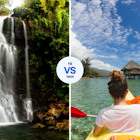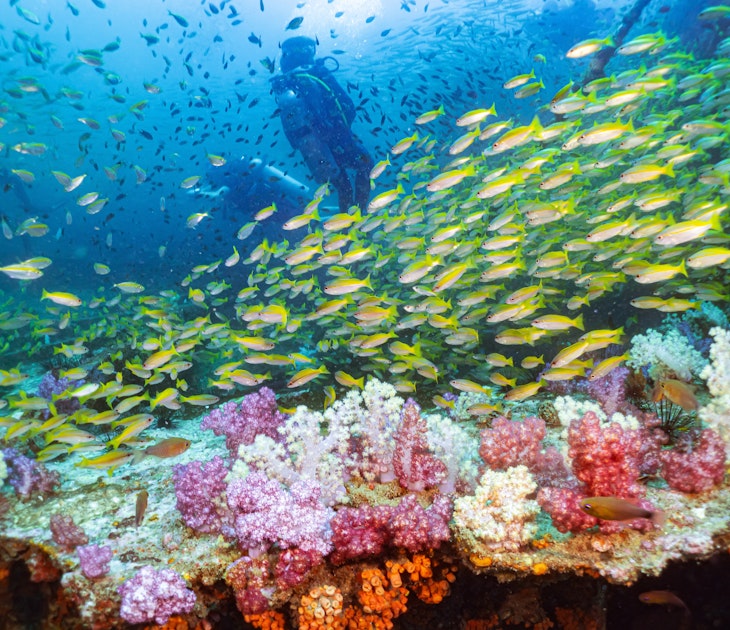
On the day we arrive in Pape'ete, we are taken on a boat trip. Thereтs no official cure for jetlag, not really, but snorkelling in water so deep and clear that itтs known colloquially as 'the aquarium' is a good place to start.
Our brains are pickled from 21 hours of air travel, our muscles feel as though theyтre on the verge of atrophy, and as the ocean touches our skin we start to come alive again. Our shipтs captain hands us chunks of baguette and we swim around, shredding the delicious fresh bread into the sea so the fish swarm around us in bursts of yellow and purple. Nothing about this feels real. This is not reality; this is a screensaver from Windows 98.
тAre there sharks here?т I shout.
тYes,т the captain shouts back. тBut donтt worry. Everyoneтs cool here. Even the sharks are cool. There has not been a shark attack in 20 years.т
We climb back into the boat. Our captain is on his phone. тI regret to inform you,т he says. тThat there has been a shark attack in Mo'orea.т

Mo'orea is a lush volcanic island parallel to Pape'ete, and the location tag for every Instagram photo you post here will autocomplete to тMo'orea, the heart of French Polynesiaт. Itтs the kind of paradise you imagine when you picture French Polynesia, a natural playground that boasts green mountain valleys, blooming hibiscus and white beaches. It's a big honeymoon spot, and this shark attack (on a French woman who was snorkelling with her six-year-old son), though not fatal, is a PR concern for an island where so much of the tourism industry is based on putting foreigners in the ocean.
тWeтre going to Mo'orea in a few days,т I tell our captain. тI guess we just wonтt get in the water.т
In Mo'orea, I spend about 70% of my waking hours in the water.
Iтm not a particularly adventurous traveller. Iтm not even a very strong swimmer. My caution is not so much thrown to the wind as lightly lobbed to it. So how do I end up with my legs dangling mere feet away from a school of black-tipped sharks?

I have only one explanation for this turn of events. To put it cheesily, Mo'orea is not just a place, itтs a state of mind. And much of that state of mind relates back, inevitably, to the ocean. Everyone who lives and works in Mo'orea is dating the ocean. They flirt with the ocean. They worry about her safety. They have spats with the ocean that they tell you about, chuckling over beers.
I hear one story about a spear fisher who almost drowned when his wetsuit was caught underwater by coral, and had to quickly take off the suit and reach the surface before his lungs collapsed. тIt was the funniest day,т he says, grinning as though his girlfriend were the kind of free-spirit thinker that occasionally tries to kill him. тScary, but, yтknow. Funny.т
Like any difficult partner, Mo'orea knows how you can get the best out of her. A visit to Motu Tiahura is accompanied by a lunch of grilled tuna, barbecued right on the beach, and endless rum punch out of the cooler. Our table is placed directly in the ocean, where schools of small silver fish and the occasional stingray swim around our legs as we eat, hoping to catch our scraps as they fall off our forks. Itтs the kind of quintessential Tahiti experience that feels like itтs taken from some heightened dreamworld where the colour saturation is turned up a little too much. Everything glows, the turquoise water like a bright shining lacquer on the landscape..
Try this: The beautiful French Polynesian island you've never heard of

The next day we pay a visit to , where Tauaro and Taiano, two young men in their early twenties, educate us about the project. These boys effectively grew up in the ocean. Spear fishing every day, swimming before they could walk. In their own short lifetime, theyтve seen the reef decline. Coral bleaching has turned vast swathes of the reef from a riot of pink and purple to a fragile grey.
The effects arenтt merely aesthetic. The bleaching is evidence of the coralтs inability to nourish itself amid pollution and rising sea temperatures. If the coral dies, the bottom level of the oceanтs food pyramid is completely eradicated, leaving countless species at risk. The brittle coral is also unable to break waves before they reach the shore, meaning the coastline is eroding more and more every year. Based on current trends, all coral reefs may be dead by the year 2050. The Coral Gardeners' solution is to transplant healthy coral cuttings to degraded areas of the reef, strengthening the reef against further damage.
Itтs a vast, ambitious project, but one the team has made impressive headway on. The savvy young team have slick visuals and an effective marketing campaign powered by their relationships with influencers who 'adopt' coral and post about it on social media. Every guest adopts and plants their own coral, providing an enduring tie to the project.

As we leave, the rum punch comes out and the French hip-hop starts pumping. тWeтre going to a beach party,т they say, jumping into a kayak. Beach parties hosted by the various resorts are key social occasions on Mo'orea. Itтs proof once again that life, real life, only happens in the water. Inland, the few scattered villages with their souvenir shops and pharmacies feel temporary by comparison, only there so tourists have the opportunity to buy things.
The longer you spend in Mo'orea, dating the ocean, the more you are lulled into the concept that the ocean is the only thing worth dating. You become jealous of Mo'oreans and their ability to care so deeply about something that matters so much, when all you can do is care a little about things that donтt matter at all.
And so, as the Mo'orean guides skim effortlessly through the water, schools of small sharks circling in the distance, I start to feel very alone on the boat. I want so badly to be like them. To trust the ocean, and to respect it, and to party with it, and yes, to date it a little bit. I put a foot on the stepladder leading to the sea and take a deep breath.
Splash.
Caroline O'Donoghue travelled to Tahiti with support from . РЯАФУХСљКЯВЪПЊНБМЧТМ contributors do not accept freebies in exchange for positive coverage.
Explore related stories

Sports
You can be a part of worldwide coral regeneration schemes т here's howMar 29, 2022 тЂ 5 min read

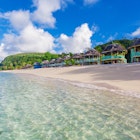
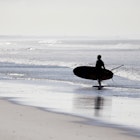

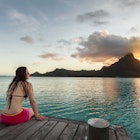
 Destination PracticalitiesA first-time guide to Tahiti and French Polynesia
Destination PracticalitiesA first-time guide to Tahiti and French PolynesiaDec 4, 2024 тЂ 9 min read


